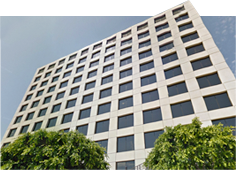New USCIS Rule States H-1Bs will not be Subject Wage-Based Selection Process
On January 8, 2021, the Department of Homeland Security (“DHS”) published a final rule, “Modification of Registration Requirement for Petitioners Seeking To File Cap-Subject H-1B Petitions” which would have changed the process by which U.S. Citizenship and Immigration Services (USCIS) selects H-1B registrations for the filing of H-1B cap-subject petitions (or H-1B petitions for any year in which the registration requirement is suspended), by generally first selecting registrations based on the highest Occupational Employment Statistics (OES) prevailing wage level that the proffered wage equals or exceeds for the relevant Standard Occupational Classification (SOC) code and area(s) of intended employment. In other words, higher salary offered would have equaled higher chances of receiving H-1B status or visa.
However, that rule has now been suspended by Biden Administration and will not affect this year’s H-1B lottery. A February 4, 2021 announcement states: “The Department is delaying the rule’s effective date until December 31, 2021, because USCIS will not have adequate time to complete system development, thoroughly test the modifications, train staff, and conduct public outreach needed to ensure an effective and orderly implementation of the H-1B Selection Final Rule by the time the initial registration period will be open for the upcoming fiscal year (FY) 2022 H-1B cap season. During the delay, while USCIS works through the issues associated with implementation, DHS leadership will also evaluate the January 8th rule and its associated policies, as is typical of agencies at the beginning of a new Administration.”
The suspension of the Wage-Selection rule is welcome news for new graduates hoping to transition from OPT post-student completion to H-1B status, as well as for small businesses in various fields, seeking to hire and maintain employees under the traditional H-1B rules as they have existed since H-1B visa was created and shaped by the Immigration and Nationality Act of 1952 and the Immigration Act of 1990. The duration of stay for an H-1B worker is three years, extendable to six years or longer if the person is being concurrently sponsored for permanent residence by their employer. More information about H-1Bs can be found here.






